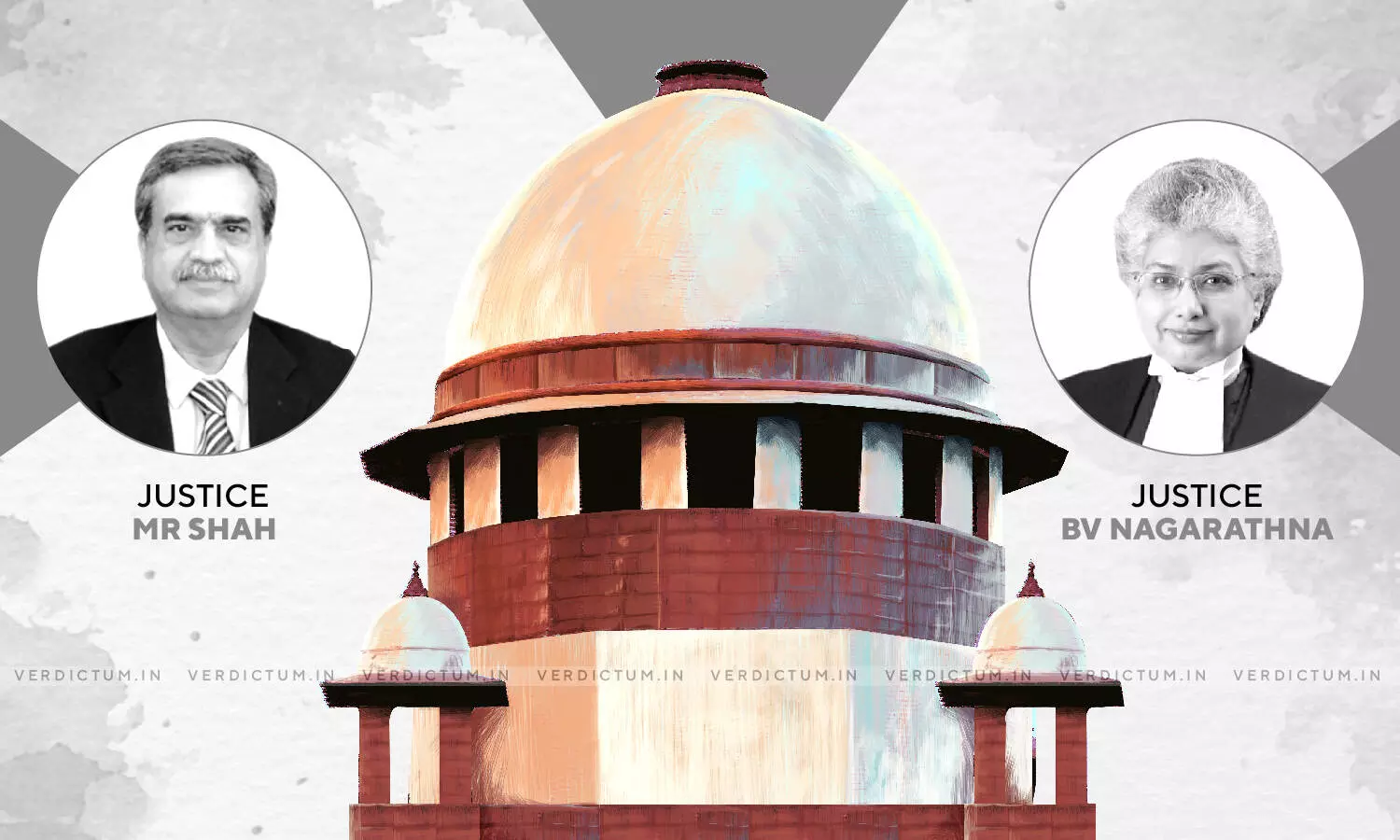
Financier Being In Possession Of Vehicle Liable To Pay Tax Under U.P. Motor Vehicles Taxation Act - Supreme Court
 |
|A two-judge bench of Supreme Court comprising of Justice M.R. Shah and Justice B.V. Nagarathna has held that a person being in possession of the vehicle as a financier was liable to pay tax under the U.P. Motor Vehicles Taxation Act, 1997.
In this case, Mahindra and Mahindra Financial Services Limited, was a financier, who had extended a loan for the purchase of a transport vehicle. On default in payment of the loan, it had taken possession of the vehicle in question. The dispute was liability to pay tax under the U.P. Motor Vehicles Taxation Act, 1997 on such financier-in-possession of the vehicle. The Allahabad High Court had held against the Appellant financier and had held that the Appellant was in possession of the vehicle as a financier was liable to pay tax under the Act, 1997. The Appellant financier had preferred the appeal before the Supreme Court.
Counsel, Shri Prashant Kumar, appeared on behalf of the Appellant while Senior Advocate, Ms. Garima Prasad, represented the State of Uttar Pradesh before the Apex Court.
The primary issue in this case was –
Whether, a financier of a motor vehicle/transport vehicle in respect of which a hire-purchase, lease, or hypothecation agreement had been entered, was liable to tax from the date of taking possession of the said vehicle under the said agreements.
It was contended by the Appellant that being a financier-in-possession of the transport vehicle, who had taken the possession of the transport vehicle in question on default in payment of the loan unless the said transport vehicle was put to use and/or was being actually used, there should not be any liability on the Appellant-financier to pay the tax payable under the Act, 1997. It was argued that the Court ought to allow the present appeal and to hold that the Appellant being a financier-in-possession of the transport vehicle was not liable to pay any tax under the Act, 1997 unless it was put to use.
On the other hand, the Respondent State argued that under the provisions of the Act, 1997, every "owner" and "operator" were liable to pay tax leviable under Section 4. It was claimed that the financier-in-possession of the vehicle could be said to be the "owner" and was liable to pay the tax in advance and the only remedy available to such a financier was to claim a refund in case of the vehicle was not used, otherwise, he was liable to pay the tax dues.
The Court held that – "As per Section 2(h) of the Act,1997 read with Section 2(30) of the Act, 1988, even a person in possession of the vehicle under the hire- purchase agreement or an agreement of sell or an agreement of hypothecation can also be said to be the "owner". Therefore, a financier like the Appellant, who is in possession of the transport vehicle in question owing to non-payment of the loan amount is an "owner" under the relevant provisions of the Act, 1997 and Act, 1988."
The Apex Court observed that a financier of a motor vehicle/transport vehicle in respect of which a hire-purchase or lease or hypothecation agreement had been entered, was liable to tax from the date of taking possession of the said vehicle under the said agreement.
According to the Court, if, after the payment of tax, the vehicle was not used for a month or more, then such an owner may apply for a refund under Section 12 of the Act, 1997 and had to comply with all the requirements for seeking the refund as mentioned in Section 12, and on fulfilling and/or complying with all the conditions mentioned in Section 12(1), he may get the refund to the extent provided in subsection (1) of Section 12, as even under Section 12(1), the owner/operator should not be entitled to the full refund but should be entitled to the refund of an amount equal to one-third of the rate of quarterly tax or one-twelfth of the yearly tax, as the case may be, payable in respect of such vehicle for every thirty days of such period for which such tax has been paid. However, the Court opined that only in a case, which fell under sub-section (2) of Section 12 and subject to the surrender of the necessary documents as mentioned in sub-section (2) of Section 12, the liability to pay the tax should not arise, otherwise the liability to pay the tax by such owner/operator should continue.
Thus, the Supreme Court held that the impugned judgment and order passed by the Full Bench of the High Court did not warrant any interference and the appeal stood dismissed accordingly.
Click here to read/download the Judgment